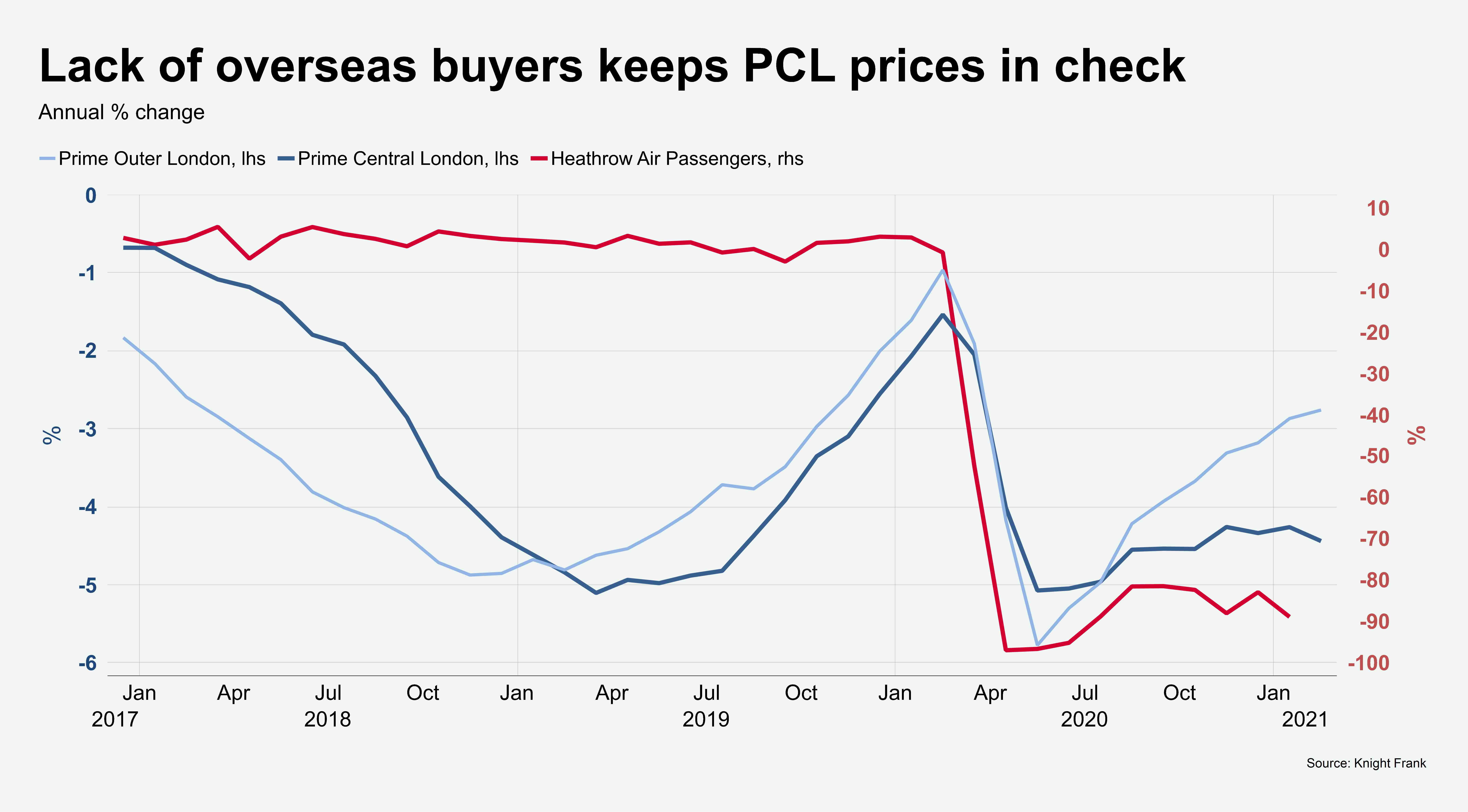Friday property news update - 5th March
Retail's ESG challenge, construction rebounds and what was left unsaid in the budget
4 minutes to read
The budget, explained
Wednesday's budget played out largely as we had expected, with an extension of the stamp duty holiday and the introduction of a 95% LTV mortgage guarantee scheme. Here, Tom Bill analyses their likely impact, and walks us through new OBR forecasts for house prices, transactions, economic output and employment.
But what about what was left unsaid?
This morning we relaunched Knight Frank's research podcast. Each week our team of analysts will unpick the biggest stories impacting property - think of it as everything we touch on in these newsletters, analysed, put into context and crammed into less than 15 minutes.
This week, Anna Ward, Tom Bill and our retail expert Stephen Springham discuss the long term implications of the budget, and why what was left out could be as important as what was included. Plus, they share a few stories you might not be following that are likely to have significant implications for the UK housing and retail markets in the coming months. Listen on Spotify, Apple, Acast or wherever you get your podcasts - just search 'Intelligence Talks'.
Retail and ESG: it's complicated
As the retail sector seeks to build back better from the biggest stress test the industry has ever faced, Stephen Springham takes on one of the elephants in the room - how do you do it in a manner that is kind both to the environment and society?
There's a lot at stake here, particularly for small high street stores that generate some of the highest levels of energy demand. The Carbon Trust calculates a 20% reduction in energy costs is equivalent to a 5% increase in sales. Meanwhile relatively small changes can have an outsized impact: the ‘Close the Door’ initiative slashed each store’s annual carbon footprint by up to 10 tonnes – the equivalent of three return London to Hong Kong flights, with no adverse impact on footfall.
There are also big challenges for landlords. Many benefits materialise in the form of reduced energy costs which flow to tenants, making it problematic to justify capital outlay. Practically many landlords lack control over the use and fit out of spaces, which whilst an expectation of the market, makes it difficult for environmental initiatives to be implemented.
It's well worth reading the whole piece to find out how some of the biggest landlords are grappling with a complex issue.
Projects restart
Britain’s construction industry rebounded in February, aided by a return to growth in the commercial sector, as developers opted to restart projects they had suspended earlier in the pandemic, according to a new Construction Purchasing Managers’ Index.
Housebuilding slowed a little due to adverse weather conditions and growing wait times for materials. Meanwhile, Vistry chief executive Greg Fitzgerald has been speaking with the FT's George Hammond about the housing market, the Budget and tries to put a remarkable twelve months into context:
“The pandemic has created a market: the divorce rate is up; people are thinking: do I want to live in a city, do I want to live in a high rise, do I need an office? . . . I said at the end of one of our board meetings in March 2020: who is going to buy a house with all this going on? It’s turned out to be a case of: who isn’t?”
What's happening in central London?

Prices in the prime central and outer London property markets continued to recover from the impact of the pandemic at their own respective pace in the first two months of this year. While there has been a steady pick-up in prime outer London, prime central London is in more of a holding pattern, with prices flat in the three months to February - largely due to the continued absence of international travellers.
That absence is also impacting the lettings market: demand from international students and corporate tenants has fallen amid an almost 90% reduction in passenger numbers moving through Heathrow.
Meanwhile, a high level of short-let properties transferring to the long-let market has driven supply higher, which explains why market valuation appraisals are up by two-thirds on last year. Successive lockdowns have forced owners of short-let Airbnb-type properties to change their strategy. Tom Bill has more.
In other news...
UK job ads recover, US jobs recover, China sets 6% GDP growth target, inflation is sleeping, not dead, and finally, a backlash over lack of green measures in the budget.